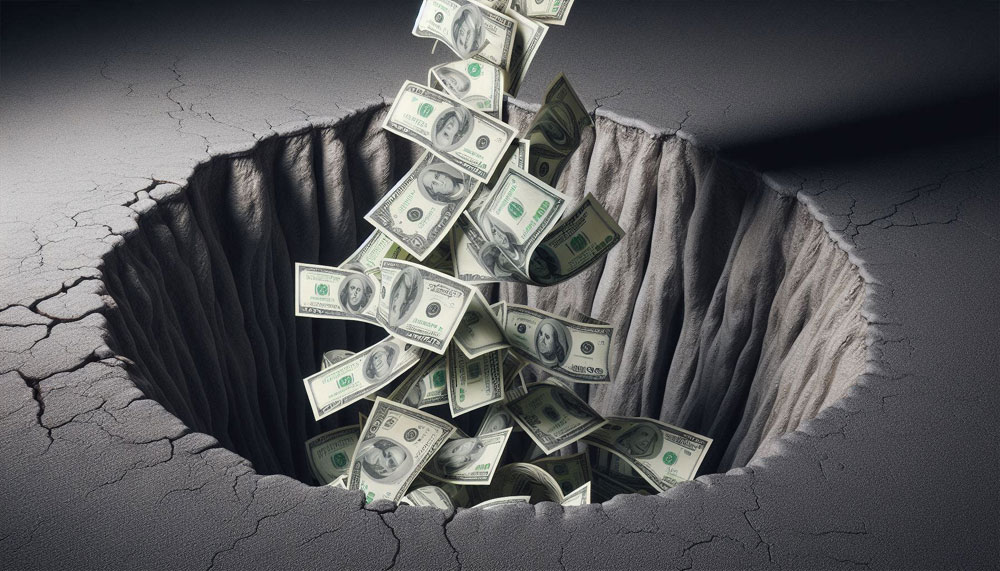Let’s face it—wasting money is all too easy. You might be unknowingly draining your wallet every single day! Here are 20 common habits that could be costing you more than you realize, and how to curb that unnecessary spending.
1. Skincare and Multivitamin Spending
Many of us regularly spend a significant amount of money on skincare, anti-aging products or multivitamins without consulting a professional. While these products can offer benefits, they may not be necessary for everyone and could be a waste of money. Regular consultations with a dermatologist or nutritionist can help determine which products are suitable for your skin type and health needs, potentially saving you money over time.
2. Buying Coffee Daily
Nearly 75% of Americans enjoy a daily cup of coffee, according to Drive Research. While not all of it is purchased on the go, our collective love for caffeine significantly adds up over time, impacting our wallets more than we realize.
3. Paying for Unused Gym Memberships
Many Americans sign up for gym memberships that go unused, often due to the difficulty of canceling contracts. This common financial pitfall wastes money each month without providing any benefit in return.
4. Overusing Paper Towels
Paper towels are often used for tasks that could easily be handled by reusable cloths. Switching to cloth not only saves money but is also a more environmentally friendly choice, reducing waste over time.
5. Shopping Without a List
Heading to the store without a list can lead to unnecessary impulse buys. Being strategic with your shopping by planning ahead helps control spending and keeps your budget in check.
6. Daily Fast Food Consumption
According to The Barbecue Lab, one-third of Americans consume fast food daily or several times a week. This habit is not only unhealthy but also much more costly compared to preparing meals at home.
7. Ignoring Credit Card Payments
Letting your credit card bill pile up can lead to hefty interest charges and late payment fees. Better management of your accounts and spending habits can help you avoid these unnecessary costs and keep your finances in check.
8. Frequent Online Shopping
Online shopping can quickly drain your bank account. If this is a problem for you, consider avoiding these sites altogether or setting up website blockers to limit your access and curb impulsive spending.
9. Using Branded Pharmaceuticals
According to the National Institutes of Health, there’s no significant difference between branded and generic medicines. Opting for generic painkillers over branded ones like Nurofen can save you money without sacrificing effectiveness.
10. Mismanaging Home Energy Use
Leaving lights on and overusing hot water can significantly increase your energy bill. Ensuring proper insulation and being mindful of energy use around the house can help you save money and reduce your environmental impact.
11. Buying New Books Regularly
Instead of purchasing every book brand new, consider borrowing from libraries or buying from second-hand bookstores. E-books are another cost-effective alternative that can save you money while still allowing you to enjoy your favorite reads.
12. Subscribing to Multiple Streaming Services
Do you find yourself juggling subscriptions to Amazon Prime, Netflix, and Disney Plus? Consider if you truly need all of them or if you could save money by using just one or occasionally renting movies instead. Spending excessively on multiple streaming services may not be the most cost-effective choice for many.
13. Not Comparing Insurance Plans
Each time your insurance policies come up for renewal, take the time to compare your current price with quotes from other providers. Utilizing price comparison sites can help you find better deals and potentially save you a significant amount of money.
14. Regularly Upgrading Tech Gadgets
Before splurging on the latest tech gadgets, consider if you truly need the upgrade. Is the new model significantly better than the one you already own, or are you buying into the hype? Carefully evaluating each upgrade can help you save money in the long run.
15. Overdrafting Bank Accounts
Overdraft fees can add up quickly and become a significant expense. Proper account management and monitoring your spending can help you avoid these fees and save money.
16. Buying Bottled Water
Aside from the environmental impact, buying bottled water can also be costly. Consider investing in a reusable water bottle and a water filtration system to save money and reduce waste.
17. Overspending on Cable Packages
Many of us are paying for more cable channels than we actually need. While cable companies often sell large packages, it’s important to assess your viewing habits and opt for a package that fits your needs to avoid overspending.
18. Neglecting Car Maintenance
Ignoring small issues with your car can lead to larger, more expensive problems over time. Regular maintenance can help prevent costly repairs and ensure your vehicle runs smoothly.
19. Impulse Purchases at Checkout
Stores strategically place tempting items near the checkout to encourage impulse purchases. Being mindful of this tactic can help you avoid unnecessary spending and stick to your budget.
20. Subscribing to Magazines and Newspapers
While the appeal of print media is undeniable, consider whether it’s necessary to your life. Switching to online subscriptions can save you money without sacrificing your reading habits.
More on VOU
The Persistence of Unhealthy Diets in the United States: An Examination
Highlights The State of American Diets Recent research from Tufts University, published in the Annals of…
Here’s Why Refined Sugar is a Slow Poison According to Nutritionists
Highlights White sugar, also known as refined sugar, is a staple in many diets worldwide. While…
ByteDance Teams Up with Broadcom and TSMC to Develop 5nm AI Chip
Highlights: ByteDance’s Strategic Move in AI Chip Development TikTok’s parent company, ByteDance, has embarked on a…
Apple and Meta Eyeing AI Partnership
Highlights Apple and Meta’s AI Vision Apple is reportedly in talks with Meta to explore a…





